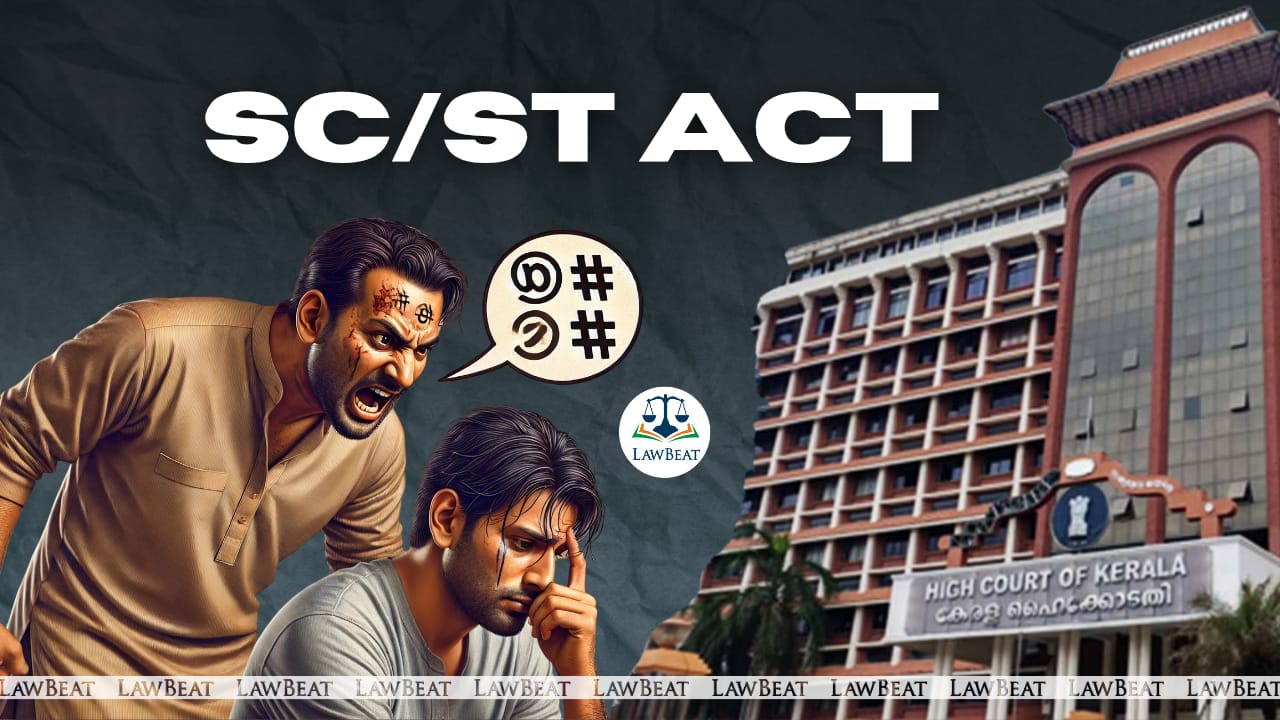‘Son of a Prostitute’ Remark Not a Casteist Slur: Kerala HC Grants Pre-Arrest Bail to Accused

The court found that the altercation between the parties occurred due to pre-existing disputes regarding property and a damaged motorbike and was unrelated to caste identity
The Kerala High Court has granted pre-arrest bail to a man accused of caste-based abuse. The court ruled that the Malayalam word used by the accused which translates to 'son of a prostitute' does not constitute a casteist slur under the Scheduled Castes and Scheduled Tribes (Prevention of Atrocities) Act, 1989 (SC/ST Act).
A Single judge bench of Justice C.S. Sudha noted that while the term was undoubtedly abusive, it lacked the caste-specific intent required to establish an offence under the Act. “An offence under the Act is not established merely on the fact that the informant is a member of the scheduled caste unless there is an intention to humiliate a member of scheduled caste or scheduled tribe for the reason that the victim belongs to such caste,” the court stated.
The case stemmed from an incident on November 12, 2024, at Perumbavoor, where the informant, a member of the Pulaya community, and his brother-in-law, Abiraj, were allegedly verbally abused and physically attacked by three accused. The conflict originated from an earlier altercation in which the first accused had damaged Abiraj’s motorbike. On the evening of the incident, the second accused allegedly entered the informant’s property, verbally abused the victims, and physically assaulted them. The other two accused later joined and allegedly attacked Abiraj with a pair of scissors, causing serious injuries. During the confrontation, the third accused purportedly used the derogatory words, which the informant claimed was directed at him and his relative as caste-based abuse.
A case was registered, invoking Sections 3(1)(r) and (s) of the SC/ST Act, alongside charges of trespass, voluntarily causing hurt, and grievous hurt under the Indian Penal Code (IPC). The trial court denied pre-arrest bail, citing the statutory bar under Sections 18 and 18A of the SC/ST Act.
The appellant/ third accused challenged this decision. It was contended that the remarks made by the accused lacked a casteist connotation and did not amount to an offence under Sections 3(1)(r) or (s) of the SC/ST Act, which prohibit intentional insults or intimidation with intent to humiliate on the grounds of caste. It was also argued that the altercation was unrelated to caste identity and stemmed from a dispute over property and personal grievances.
The court, after examining the FIR, the Case Diary (CD), observed: “in the FIR the prosecution has no case of commission of an offence punishable under Section 3(1)(r) or (s) of the Act…The offence under Section 3(1)(r) of the Act would indicate the ingredients of intentional insult and intimidation with an intent to humiliate a member of a scheduled caste or a scheduled tribe. All insults or intimidation to a person will not be an offence under the Act unless such insult or intimidation is on account of the victim belonging to the scheduled caste or scheduled tribe.”
Referring to Hitesh Verma v. State of Uttarakhand and Khuman Singh v. State of Madhya Pradesh, the court noted that disputes unrelated to caste identity cannot automatically invoke the provisions of the SC/ST Act.
The court also pointed out that “a reading of the FIS shows that the incident happened due to a dispute relating to the vehicle of Abiraj and not because the informant and Abiraj belong to the scheduled caste community.”
Further, the court found no indication that the alleged insult occurred “in public view,” a requirement under Section 3(1)(r) of the Act.
In conclusion, the court held that the allegations prima facie did not support the charges. Additionally, the court held that the custodial interrogation of the accused was not necessary and thus, granted him bail.
However, the court clarified that the observations were limited to the bail proceedings and would not affect the trial.
Cause Title: Sarath K.S v State of Kerala [CRL.A NO. 2385 OF 2024]
Appearances: Advocates Mini.V.A. and Ross Ann Babu - for the appellant/ accused and Public Prosecutor Sheeba Thomas - for the Respondents
